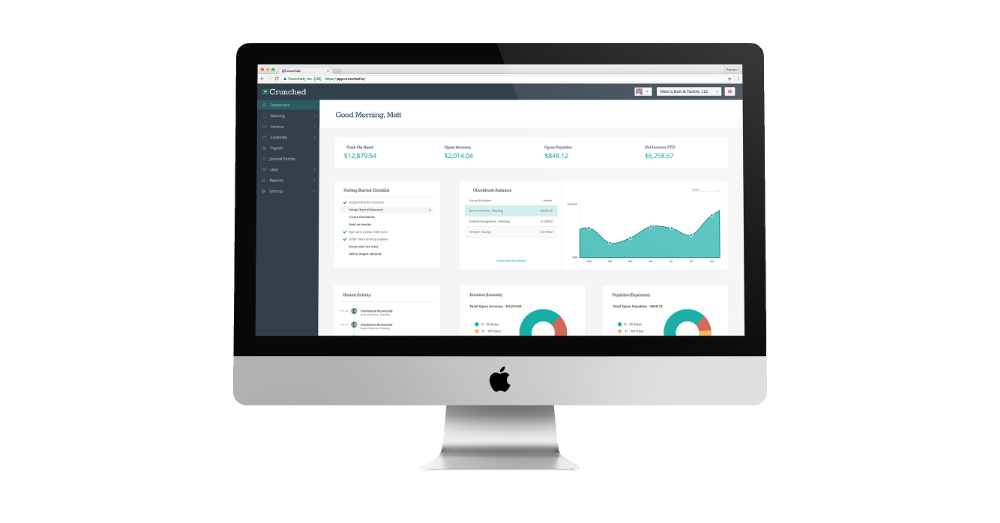How To Set Your Salary As A Small Business Owner
By Matt Reims
Running a small business often requires managing a variety of tasks and departmental responsibilities. Typically, small business owners learn as they go. Operations, accounting, marketing, etc. can take up a lot of your time. It can be easy to overlook the importance of establishing how to properly set a salary for yourself, and how to pay it.
There are several factors to consider when establishing how to set your salary. You’ll need to leave enough to pay your business expenses and ensure that cash flow is healthy. Depending on how your company is legally constructed, you could actually be required to draw a salary.
How to Pay Yourself
Your payment process will depend a lot on the structure of your small business. For example, officers in corporations or companies set up as an S Corp. are required to be on the company payroll and collect regular paychecks like the rest of the staff. And just like the staff, your regular paychecks must include deductions like social security, Medicare, and state and federal taxes. Any kind of corporation owner can also take more money beyond his or her salary as a draw, dividend, or distribution. These checks do not typically have to include any tax withholdings like standard payroll checks do, but be careful here. The IRS will look closely at these arrangements to ensure that the amount of compensation is reasonable.
If you’re a sole proprietor, you have more flexibility in paying yourself. You could take profits out of your business on a schedule of your choosing. When it comes to taxes, you’ll want to calculate how much tax you anticipate paying at the end of the year and make estimated federal tax payments on a quarterly basis, as well as to your state agency, if your state collects income tax. As a sole proprietor, you are essentially the company — the business is not taxed. Instead, you report all business income and losses on your personal income tax return. Although it’s not required to pay yourself on a recurring schedule, it’s something you should consider to help keep your small business finances better organized.
If you’re still working to determine the appropriate business entity for your small business, check out this guide. https://www.irs.gov/uac/choosing-a-business-structure
How Much to Pay Yourself
Your small business owner salary should be based on a number of factors that include where your business is located, what industry you’re working in, how much of a profit your business is turning, and your desired earnings. Preferably, you should only pay yourself a salary from your profits rather than your revenue. If you do have to pay yourself from the latter, make sure to pay your other expenses, like taxes, employees’ salaries, overhead, and fixed costs, before you take anything.
If you’re still stuck on an appropriate salary figure, you can use accounting software to help you. Crunched cloud accounting software will help you monitor your expenses and compute your company’s profits rather than revenue, and give you a clearer picture of how much you can afford to pay yourself.
Here are a few other considerations when determining how to set your salary as a small business owner:
Don’t Sell Yourself Short
In the early stages of your business, you may not be profitable, but you should pay yourself something. You are likely working long hours and should be compensated, even if it’s just enough to pay your basic living expenses. You probably encounter enough stress running your own company. Taking that stress home with you is not healthy.
Do Research to Determine a “Reasonable” Salary
S Corp. operators not only have to pay themselves a salary, but also the IRS requires it be “reasonable” as well. To determine what’s reasonable for your specific business, look at what other people performing your role are paid. Online resources like PayScale provide average salary data on a wide range of positions, including “Small Business Owner.” You can also review what recruiters offer to pay someone who will be doing a job similar to yours.
Other questions you can ask yourself to determine a reasonable salary are:
- Does your salary equate to your responsibility level, and how much business do you handle?
- Does your salary line up with the number of hours you’re working?
- How does your salary compare to what you’re paying your employees?
Explore Tax-Efficient Ways to Pay Yourself
After you’ve figured out a reasonable salary, all that’s left is to determine how to distribute those funds to yourself. As a small business owner, you have multiple expenses to consider — including taxes. With that in mind, your salary should be paid in the most tax-efficient manner possible.
You could take a straightforward salary; it’s easy to account for, but in terms of tax efficiency, it’s not the best option. Instead, consider paying yourself a smaller salary, and make up the rest with dividend payments, as they’re usually taxed less than a salary payment is. You could also pay yourself in company stock or take a smaller salary, along with a company bonus. If you choose this route, just remember that the IRS looks for this type of compensation to be “reasonable.”
Establishing how to set your salary as a small business owner will be one of the more important things to check off your to-do list when setting up a new business, particularly as it relates to your finances, and tax obligations. If you’re generating enough revenue to pay yourself a salary, you should be proud. Establishing a successful small business is quite an accomplishment.


